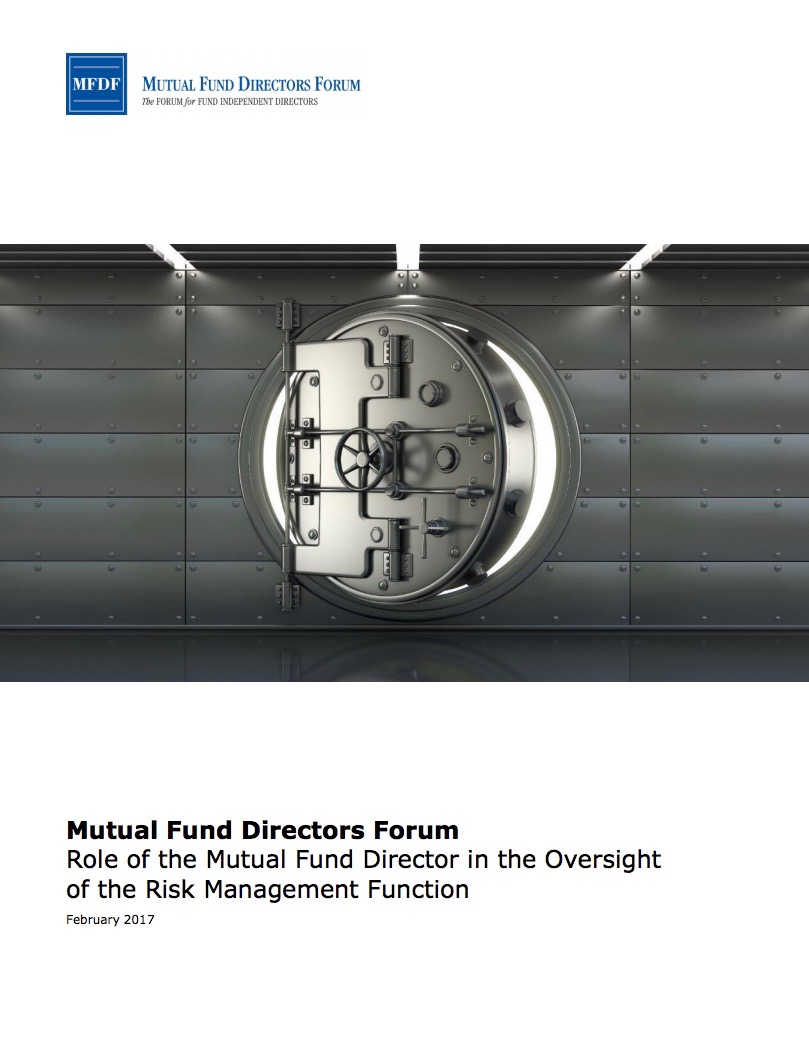
Risk is inherent in the investment management business. At the most fundamental level, investment advisers cannot invest money and earn investment returns without taking some measure of investment risk. Similarly, the systems supporting the operations of a fund are not constructed to eliminate all risks as such a system would defeat the purpose of taking on intended risk. Additionally, these systems cannot totally eliminate “unintended” risk, or all unforeseen and undesirable aspects of expected, or intended risk, as this would be both cost prohibitive, and potentially impossible to execute effectively.
Therefore, the goal of effective risk management is not to eliminate risk. Instead, investment advisers and other key service providers develop systems and processes designed to identify risks and manage those risks appropriately in light of the information available. While boards of directors of mutual funds are not directly responsible for risk management of the funds they oversee, directors should be aware of their fund’s adviser’s and key service providers’ risk frameworks, policies, procedures, and systems in place for identifying, analyzing, and managing risks.
In a new paper, Mutual Fund Directors sets forth key concepts and principles relevant to boards, including laying out a fund independent director’s duties and role in risk oversight, setting forth a framework to allow directors to appreciate how investment advisers develop and monitor risk management programs, and discussing several specific areas of risk facing mutual funds today.
To read the paper, click here.
